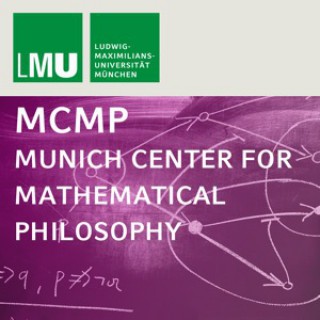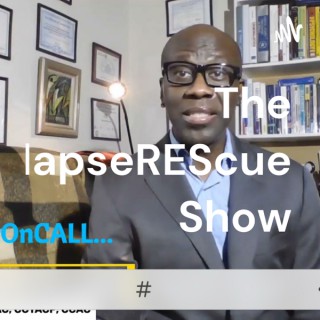Podcasts about model theory
- 11PODCASTS
- 14EPISODES
- 1h 10mAVG DURATION
- ?INFREQUENT EPISODES
- Aug 12, 2022LATEST
POPULARITY
Best podcasts about model theory
Latest news about model theory
- First-order Model Theory Stanford Encyclopedia of Philosophy - Jan 26, 2024
- Finite Model Theory and Game Comonads: Part II The n-Category Café - Sep 11, 2023
Latest podcast episodes about model theory
#22 Impredicativity, LEM, Realizability and more - Cody Roux
In this episode Cody Roux teaches some interesting concepts that people care about in Mathematics and Logic as a way to try to understand what is going on in the universe around us! In particular we will try to explain concepts such as Impredicativity, Excluded Middle, Group Theory, Model Theory, Kripke Models, Realizability, The Markov Principle, Cut Elimination, and other stuff! Links Cody's website Cody's dblp
#22 Impredicativity, EM, Realizability and more - Cody Roux
In this episode Cody Roux teaches some interesting concepts that people care about in Mathematics and Logic as a way to try to understand what is going on in the universe around us! In particular we will try to explain concepts such as Impredicativity, Excluded Middle, Group Theory, Model Theory, Kripke Models, Realizability, The Markov Principle, Cut Elimination, and other stuff! Links Cody's website Cody's dblp
#22 Impredicativity, LEM, Realizability and more - Cody Roux
In this episode Cody Roux teaches some interesting concepts that people care about in Mathematics and Logic as a way to try to understand what is going on in the universe around us! In particular we will try to explain concepts such as Impredicativity, Excluded Middle, Group Theory, Model Theory, Kripke Models, Realizability, The Markov Principle, Cut Elimination, and other stuff! Links Cody's website Cody's dblp
On learning difficult things by So8res
Welcome to The Nonlinear Library, where we use Text-to-Speech software to convert the best writing from the Rationalist and EA communities into audio. This is: On learning difficult things, published by So8res on the LessWrong. I have been autodidacting quite a bit lately. You may have seen my reviews of books on the MIRI course list. I've been going for about ten weeks now. This post contains my notes about the experience thus far. Much of this may seem obvious, and would have seemed obvious if somebody had told me in advance. But nobody told me in advance. As such, this is a collection of things that were somewhat surprising at the time. Part of the reason I'm posting this is because I don't know a lot of autodidacts, and I'm not sure how normal any of my experiences are. (Though on average, I'd guess they're about average.) As always, keep in mind that I am only one person and that your mileage may vary. Pair up When I began my quest for more knowledge, I figured that in this modern era, a well-written textbook and an account on math.stackexchange would be enough to get me through anything. And I was right. sort of. But not really. The problem is, most of the time that I get stuck, I get stuck on something incredibly stupid. I've either misread something somewhere or misremembered a concept from earlier in the book. Usually, someone looking over my shoulder could correct me in ten seconds with three words. "Dude. Disjunction. Disjunction." These are the things that eat my days. In principle, places like stackexchange can get me unstuck, but they're an awkward tool for the job. First of all, my stupid mistakes are heavily contextualized. A full context dump is necessary before I can even ask my question, and this takes time. Furthermore, I feel dumb asking stupid questions on stackexchange-type sites. My questions are usually things that I can figure out with a close re-read (except, I'm not sure which part needs a re-read). I usually opt for a close re-read of everything rather than asking for help. This is even more time consuming. The infuriating thing is that answering these questions usually doesn't require someone who already knows the answers: it just requires someone who didn't make exactly the same mistakes as me. I lose hours on little mistakes that could have been fixed within seconds if I was doing this with someone else. That's why my number one piece of advice for other people attempting to learn on their own is do it with a friend. They don't need to be more knowledgeable than you to answer most of the questions that come up. They just need to make different misunderstandings, and you'll be able to correct each other as you go along. The thing I miss most about college is tight feedback loops while learning. When autodidacting, the feedback loop can be long. I still haven't managed to follow my own advice here. I'm writing this advice in part because it should motivate me to actually pair up. Unfortunately, there is nobody in my immediate circle who has the time or patience to read along with me, but there are a number of resources I have not yet explored (the LessWrong study hall, for example, or soliciting to actual mathematicians). It's on my list of things to do. Read, reread, rereread Reading Model Theory was one of the hardest things I've done. Not necessarily because the content was hard, but because it was the first time I actually learned something that was way outside my comfort zone. The short version is that Basic Category Theory and Naïve Set Theory left me somewhat overconfident, and that I should have read a formal logic textbook before diving in. I had basic familiarity with logic, but no practice. Turns out practice is important. Anyway, it's not like Model Theory was impossible just because I skipped my logic exercises. It was just hard. There are a number of little misconceptions you have when you're familiar with something but you've never applied it, and I found myself having to clean t...
This episode is an introduction to a 3 to 4 part mini series I will cover in exploring the Disease Model, Theory and Concept. --- Send in a voice message: https://anchor.fm/relapserescue/message
History of Set Theory/M.C. Escher/Math In Mexico - Meet a Mathematician (011): Iván Ongay-Valverde
Iván Ongay Valverde is a graduate student at the University of Wisconsin-Madison doing research in mathematical logic under the supervision of Kenneth Kunen. His research is in the field of Set Theory, in particular, he studies subsets of the Real Numbers and their behavior under different axioms and forcing extensions.His website can be found here: https://www.math.wisc.edu/~ongay/We'd like to thank Iván for being on our show "Meet a Mathematician" and for sharing his stories and perspective with us!www.sensemakesmath.comPODCAST: http://sensemakesmath.buzzsprout.com/TWITTER: @SenseMakesMathPATREON: https://www.patreon.com/sensemakesmathFACEBOOK: https://www.facebook.com/SenseMakesMathSTORE: https://sensemakesmath.storenvy.comSupport the show (https://www.patreon.com/sensemakesmath)
Shannon Spaulding, “How We Understand Others: Philosophy and Social Cognition” (Routledge, 2018))
Social cognition includes the ways we explain, predict, interpret, and influence other people. The dominant philosophical theories of social cognition–the theory-theory and the simulation theory–have provided focused accounts of mindreading, the more specific practice of ascribing beliefs, desires, and intentions to others in order to predict and explain their behavior. In How We Understand Others: Philosophy and Social Cognition (Routledge, 2018), Shannon Spaulding draws on social psychological research and kindred spirits in philosophy to argue for an expansion of this traditional focus. In her Model Theory, mindreading includes other methods we use to understand others, such as stereotypes and scripts, and other goals of these practices, such as strengthening our in-group social relationships. Spaulding, who is assistant professor of philosophy at Oklahoma State University, also explores some of the implications of her view for understanding issues in epistemology and ethics, in particular epistemic injustice. Learn more about your ad choices. Visit megaphone.fm/adchoices
Shannon Spaulding, “How We Understand Others: Philosophy and Social Cognition” (Routledge, 2018))
Social cognition includes the ways we explain, predict, interpret, and influence other people. The dominant philosophical theories of social cognition–the theory-theory and the simulation theory–have provided focused accounts of mindreading, the more specific practice of ascribing beliefs, desires, and intentions to others in order to predict and explain their behavior. In How We Understand Others: Philosophy and Social Cognition (Routledge, 2018), Shannon Spaulding draws on social psychological research and kindred spirits in philosophy to argue for an expansion of this traditional focus. In her Model Theory, mindreading includes other methods we use to understand others, such as stereotypes and scripts, and other goals of these practices, such as strengthening our in-group social relationships. Spaulding, who is assistant professor of philosophy at Oklahoma State University, also explores some of the implications of her view for understanding issues in epistemology and ethics, in particular epistemic injustice. Learn more about your ad choices. Visit megaphone.fm/adchoices
Shannon Spaulding, “How We Understand Others: Philosophy and Social Cognition” (Routledge, 2018))
Social cognition includes the ways we explain, predict, interpret, and influence other people. The dominant philosophical theories of social cognition–the theory-theory and the simulation theory–have provided focused accounts of mindreading, the more specific practice of ascribing beliefs, desires, and intentions to others in order to predict and explain their behavior. In How We Understand Others: Philosophy and Social Cognition (Routledge, 2018), Shannon Spaulding draws on social psychological research and kindred spirits in philosophy to argue for an expansion of this traditional focus. In her Model Theory, mindreading includes other methods we use to understand others, such as stereotypes and scripts, and other goals of these practices, such as strengthening our in-group social relationships. Spaulding, who is assistant professor of philosophy at Oklahoma State University, also explores some of the implications of her view for understanding issues in epistemology and ethics, in particular epistemic injustice. Learn more about your ad choices. Visit megaphone.fm/adchoices
Shannon Spaulding, “How We Understand Others: Philosophy and Social Cognition” (Routledge, 2018))
Social cognition includes the ways we explain, predict, interpret, and influence other people. The dominant philosophical theories of social cognition–the theory-theory and the simulation theory–have provided focused accounts of mindreading, the more specific practice of ascribing beliefs, desires, and intentions to others in order to predict and explain their behavior. In How We Understand Others: Philosophy and Social Cognition (Routledge, 2018), Shannon Spaulding draws on social psychological research and kindred spirits in philosophy to argue for an expansion of this traditional focus. In her Model Theory, mindreading includes other methods we use to understand others, such as stereotypes and scripts, and other goals of these practices, such as strengthening our in-group social relationships. Spaulding, who is assistant professor of philosophy at Oklahoma State University, also explores some of the implications of her view for understanding issues in epistemology and ethics, in particular epistemic injustice. Learn more about your ad choices. Visit megaphone.fm/adchoices Support our show by becoming a premium member! https://newbooksnetwork.supportingcast.fm/psychology
The Role Model Theory. This episode is a two in one. I am currently in Chiang Mai, Thailand and I am going to give you a recap on my first day here and the travel getting here . I will then go into my discussion which this week is on the "Role Model Theory" and I will give you clips of a conversation me and my boy Tim had on the subject matter. Tune In, catch a vibe and tell a friend. Most importantly, just remember to Be Great!
Geometrical Roots of Model Theory: Duality and Relative Consistency
Georg Schiemer (Vienna/MCMP) gives a talk at the MCMP Colloquium (9 July, 2015) titled "Geometrical Roots of Model Theory: Duality and Relative Consistency". Abstract: Axiomatic geometry in Hilbert's Grundlagen der Geometrie (1899) is usually described as model-theoretic in character: theories are understood as theory schemata that implicitly define a number of primitive terms and that can be interpreted in different models. Moreover, starting with Hilbert's work, metatheoretic results concerning the relative consistency of axiom systems and the independence of particular axioms have come into the focus of geometric research. These results are also established in a model-theoretic way, i.e. by the construction of structures with the relevant geometrical properties. The present talk wants to investigate the conceptual roots of this metatheoretic approach in modern axiomatics by looking at an important methodological development in projective geometry between 1810 and 1900. This is the systematic use of the "principle of duality", i.e. the fact that all theorems of projective geometry can be dualized.The aim here will be twofold: First, to assess whether the early contributions to duality (by Gergonne, Poncelet, Chasles, and Pasch among others) can already be described as model-theoretic in character. The discussion of this will be based on a closer examination of two existing justifications of the general principle, namely a transformation-based account and a (proto-)proof-theoretic account based on the axiomatic presentation of projective space. The second aim will be to see in what ways Hilbert's metatheoretic results in Grundlagen, in particular his relative consistency proofs, were influenced by the previous uses of duality in projective geometry.
The Place of Carnap's Early Model Theory in the History of Logic
Iris Loeb (Amsterdam) gives a talk at the MCMP workshop "Carnap on Logic" (3-6 July, 2013) titled "The Place of Carnap's Early Model Theory in the History of Logic".
Erich Reck (UC Riverside) gives a talk at the MCMP workshop "Carnap on Logic" (3-6 July, 2013) titled "Logic in the 1930s: Type Theory and Model Theory".














